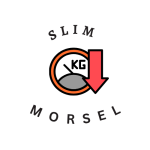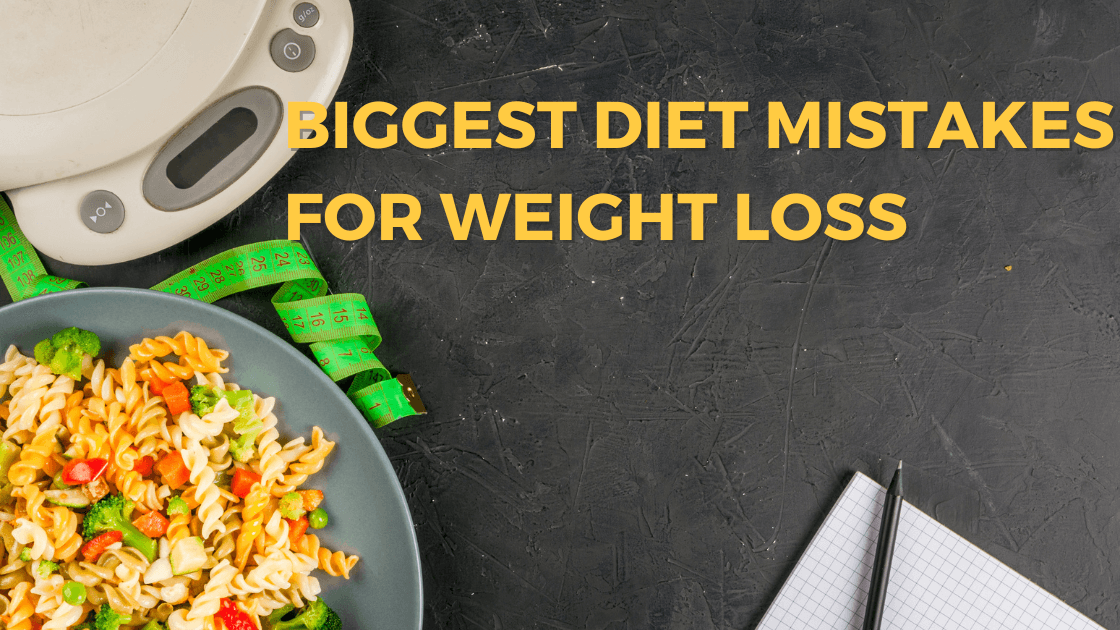I remember when I was struggling to lose weight, even though I was on a “perfect” diet. It was one of the most frustrating experiences I’ve ever had.
I was eating clean, skipping desserts, and even exercising regularly, yet the scale refused to move.
After a few months of trial and error, I finally realized that I was making several big mistakes that were sabotaging my progress.
Once I corrected them, everything changed. The fat started melting off, my energy improved, and I finally felt in control of my body again.
4 Biggest Diet Mistakes for Weight Loss
In this article, I will share with you the 4 biggest diet mistakes for weight loss, the same ones that held me back for so long.
If you’ve been dieting and not seeing results, chances are you’re making one (or more) of these mistakes too.
Mistake #1: Not Being in a Calorie Deficit
This is by far the most common mistake and the one I personally made for years.
No matter how “clean” or “healthy” your meals are, you won’t lose weight unless you’re in a calorie deficit. It’s that simple.
Here’s how it works:
- If you eat more calories than you burn, you’ll gain weight.
- If you eat fewer calories than you burn, you’ll lose weight.
When I first started dieting, I assumed that eating salads, smoothies, and grilled chicken would magically make me slimmer.
But I was still consuming too many calories thanks to things like “healthy” snacks, protein bars, and over-pouring olive oil.
It sounds cliché, but you can technically lose weight even by eating fast food as long as you’re burning more calories than you consume (though I wouldn’t recommend that approach for health reasons).
The key is awareness. Track your calories for a few days to get a realistic picture of how much you’re eating. Apps like MyFitnessPal or LoseIt! make it super easy.
Mistake #2: Adopting a Too-Severe Calorie Deficit
When I realized I needed to eat fewer calories, I went to the extreme, and that backfired. I thought, “If a 300-calorie deficit works, a 900-calorie deficit will work three times faster.”
Big mistake.
A severe calorie deficit doesn’t lead to faster fat loss; it actually hurts your progress. Here’s why:
- Your metabolism slows down, meaning you burn fewer calories each day.
- You lose muscle mass, which further reduces your metabolic rate.
- Your cravings skyrocket, making it much harder to stick to your plan.
- Your hormones go out of balance, increasing cortisol (the stress hormone) and reducing fat-burning efficiency.
At first, you might lose a few pounds quickly, but that’s mostly water and muscle. Then your body hits a wall, and once you start eating normally again, you regain everything (and sometimes more).
The smarter approach is a moderate calorie deficit enough to see steady progress without feeling deprived. Aiming for about 500 calories below maintenance per day is a healthy and sustainable target.
Mistake #3: Thinking All Calories Are Created Equal
While calorie balance determines if you lose weight, food quality determines whether you lose fat or muscle.
In the early stages of my journey, I ate too many carbs and too little protein. The result? I lost weight on the scale, but I also lost muscle. My body looked smaller but softer, not the lean, toned look I was hoping for.
That’s when I learned that not all calories are created equal.
For example:
- 100 calories from chips is not the same as 100 calories from a chicken breast.
- Protein-rich foods help preserve muscle and keep you full longer.
- Processed carbs and sugary snacks spike your blood sugar and increase cravings.
If your goal is fat loss, not just “weight loss,” prioritize:
- Protein: eggs, chicken, fish, Greek yogurt, tofu
- Fiber: vegetables, fruits, oats, legumes
- Healthy fats: avocado, olive oil, nuts
Choosing the right foods helps you stay full, maintain muscle, and make your calorie deficit easier to sustain.
Mistake #4: Following an Unrealistic, Overly Restrictive Diet
I’ve seen this (and lived it) too many times: someone goes all-in on a restrictive diet, no carbs, no sugar, no alcohol, no joy and they burn out within weeks.
The truth is, willpower is like a battery. The more you rely on it, the faster it drains.
When you forbid yourself from eating foods you enjoy, you set yourself up for binge eating later. I once tried an ultra-strict “chicken and broccoli” plan and lasted about 10 days before I gave up and devoured everything in sight.
The best diet is one you can actually stick to.
Instead of cutting out entire food groups, focus on moderation:
- Enjoy your favorite foods occasionally, just control the portions.
- Build meals around whole, nutrient-dense foods most of the time.
- Use an 80/20 rule: Eat well 80% of the time and allow flexibility 20% of the time.
Sustainability always beats perfection.
FAQ: Biggest Diet Mistakes for Weight Loss
Why am I not losing weight even though I’m eating healthy?
You might be eating too many calories without realizing it. “Healthy” foods can still be high in calories (like nuts, oils, and smoothies). Track your portions for a week to see where you stand.
How big should my calorie deficit be for weight loss?
A moderate deficit of around 400–500 calories per day is ideal. It’s sustainable, safe, and prevents your metabolism from slowing down too much.
Do I have to cut out carbs to lose weight?
No. You can absolutely lose weight while eating carbs. Focus on whole, unprocessed carbs like oats, fruits, sweet potatoes, and rice in moderation.
How do I avoid losing muscle while dieting?
Make sure you’re eating enough protein (about 1.6–2.2 grams per kilogram of body weight) and doing strength training regularly. These two things help preserve muscle even when in a calorie deficit.
What’s the best diet for long-term fat loss?
The best diet is the one you can stick to. Whether it’s Mediterranean, high-protein, or flexible dieting, choose something that fits your lifestyle and makes you feel good physically and mentally.
Key Takeaways: Biggest Diet Mistakes for Weight Loss
Losing weight isn’t about perfection; it’s about consistency, balance, and awareness.
Once I stopped making these 4 big mistakes, everything changed. I started seeing results, felt more energized, and actually enjoyed the process.
If you’re struggling right now, don’t be discouraged. Take a look at your habits, fix these mistakes one by one, and your body will respond.
Remember: it’s not about eating less, but about eating smart.

